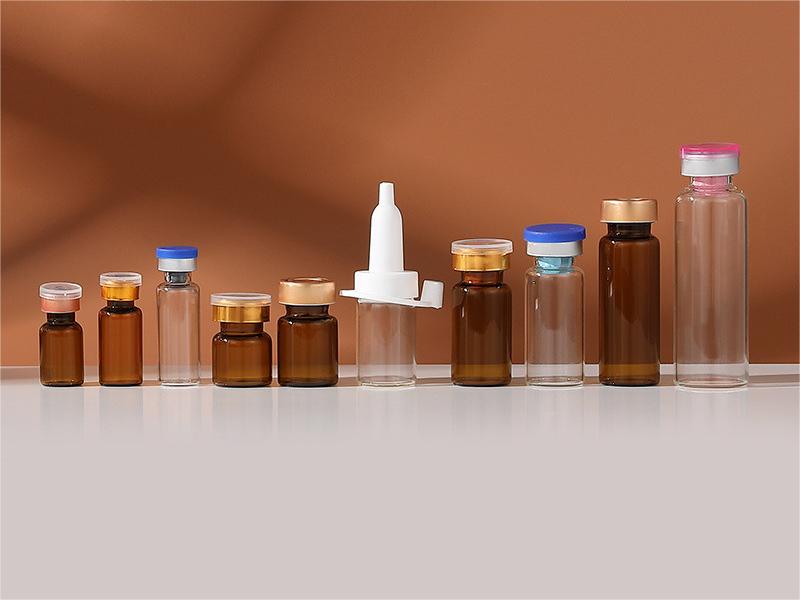Glass vials are small, cylindrical containers made from high-quality glass. They are designed to store a variety of substances including liquids, powders, and granular materials. These versatile containers are available in a range of types, sizes, and colors, such as clear, amber, and blue glass. Each is tailored to meet the specific needs of different industries. Their applications span across pharmaceuticals, cosmetics, food and beverage, and scientific research, demonstrating their indispensability in maintaining product integrity and quality. In this blog, we will explore the myriad applications of glass vials, delve into the various types and their specific uses, examine the different closures that ensure safety and convenience, and highlight the numerous benefits that make glass vials a preferred choice for many businesses. Whether you’re in the market for glass vials with lids or caps, clear glass bottles, or specialized perfume vials, understanding these factors will provide a comprehensive understanding of these essential containers.
○ Pharmaceutical Industry: Glass vials play a crucial role in the pharmaceutical industry. They are used to store and transport vaccines, medications, and other injectable drugs. The non-reactive nature of glass ensures that the contents remain uncontaminated and stable over time.
○ Cosmetic Industry: In the cosmetic industry, glass vials are used for packaging perfumes, essential oils, and serums. Their elegant appearance and ability to preserve the integrity of the product make them a preferred choice for high-end cosmetic brands.
○ Food and Beverage Industry: Glass vials are also used in the food and beverage industry for packaging small quantities of spices, flavorings, and extracts. Their non-porous nature prevents contamination and preserves the freshness of the contents.
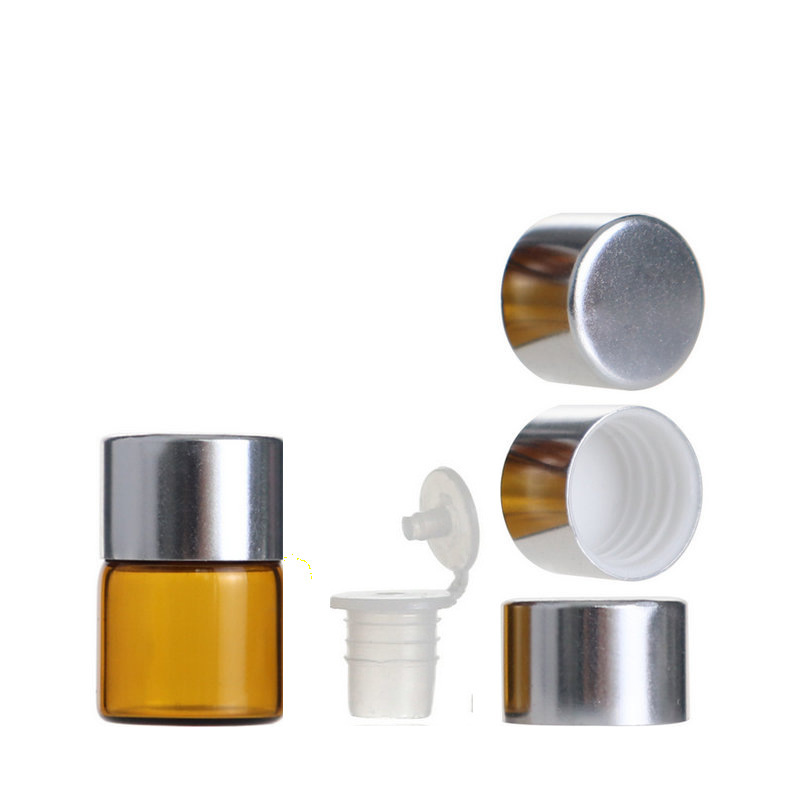
○ Scientific Research: In laboratories, glass vials are indispensable for storing chemical reagents, samples, and biological materials. Their transparency allows for easy observation of the contents, and their durability ensures safe storage and handling.
○ Other Applications: Other industries, such as aromatherapy and alternative medicine, use glass vials for storing herbal extracts, tinctures, and essential oils. These vials help maintain the potency and efficacy of the products.
Types of Glass Vials
○ Clear Glass Vials: Clear glass vials are the most common type, offering high visibility of the contents. They are ideal for products that need to be displayed or monitored for changes in color or clarity.
○ Amber Glass Vials: Amber glass vials provide excellent protection against UV light, making them suitable for light-sensitive products such as certain pharmaceuticals and essential oils. The amber color filters out harmful rays, preserving the integrity of the contents.
○ Blue Glass Vials: Blue glass vials are aesthetically pleasing and provide some degree of light protection. They are often used for high-end cosmetic products and essential oils, adding a touch of elegance to the packaging.
○ Perfume Vials: Perfume vials are specially designed for storing and applying perfumes. They often come with applicators or spray tops, making them convenient for use on the go. These vials can be clear, amber, or blue, depending on the brand’s preference.
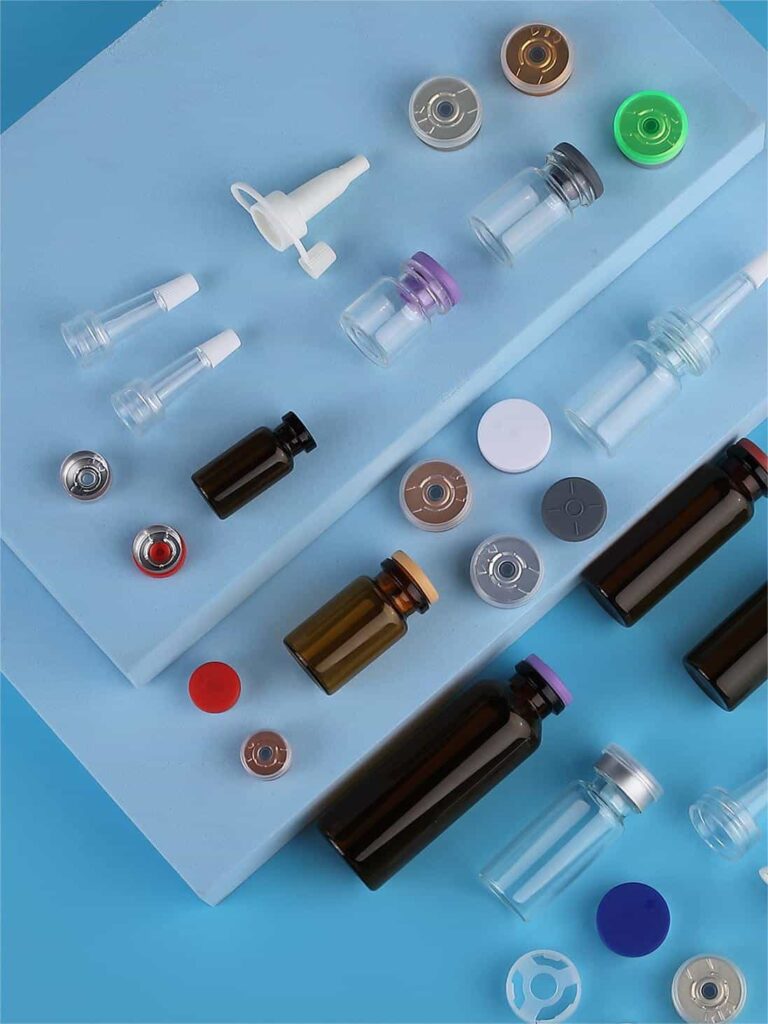
Different Closures for Glass Vials
○ Screw Caps: Screw caps are a popular closure option for glass vials. They provide a secure seal and are easy to open and close. Screw caps can be made from plastic or metal and are often used in the pharmaceutical and cosmetic industries.
○ Snap-On Caps: Snap-on caps are convenient for quick access to the contents of the vial. They are commonly used in the laboratory setting where frequent opening and closing are required.
○ Dropper Caps: Dropper caps are ideal for dispensing small quantities of liquid. They are commonly used in the cosmetic and pharmaceutical industries for products such as serums and essential oils.
○ Cork Stoppers: Cork stoppers provide a rustic and natural look, often used for artisanal or homemade products. They are not as secure as screw or snap-on caps but are suitable for certain applications.
○ Crimp Caps: Crimp caps provide a tamper-evident seal, making them ideal for high-security applications. They are commonly used in the pharmaceutical industry to ensure the integrity of the contents.
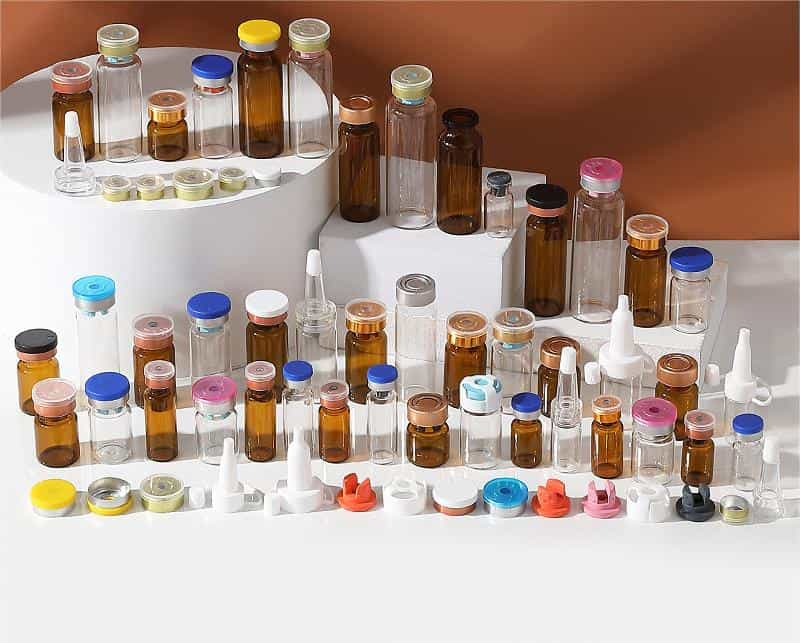
Benefits of Glass Vials
○ Chemical Inertness: Glass vials are chemically inert, meaning they do not react with the contents. This ensures that the stored substances remain pure and uncontaminated, making glass vials ideal for pharmaceuticals and other sensitive products.
○ Durability and Strength: Glass vials are durable and can withstand high temperatures and pressure changes. This makes them suitable for various applications, including autoclave and sterilization processes.
○ Transparency: The transparency of glass vials allows for easy inspection of the contents, which is crucial in many industries, such as pharmaceuticals and scientific research. It enables quick identification and monitoring of the stored substances.
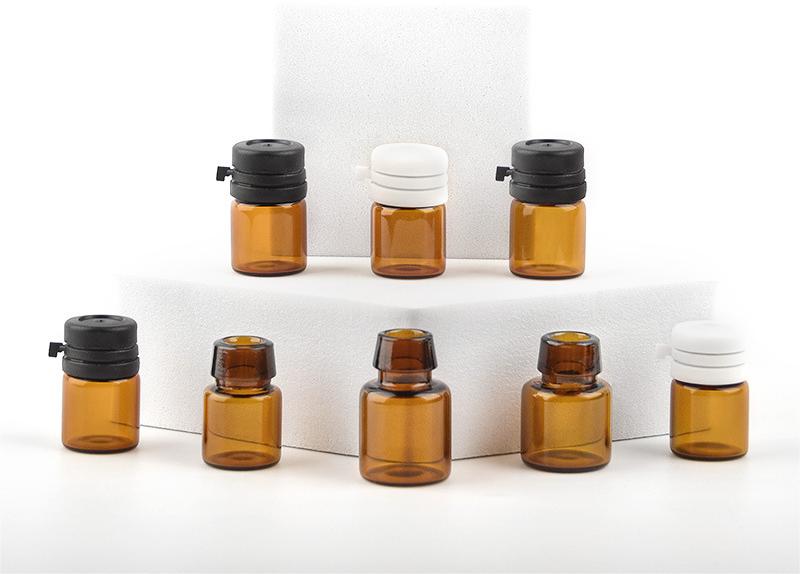
○ Aesthetic Appeal: Glass vials have a timeless and elegant appearance that enhances the overall presentation of the product. This is particularly important in the cosmetic industry, where packaging plays a significant role in brand perception.
○ Environmental Friendliness: Glass is a sustainable and recyclable material, making glass vials an eco-friendly choice. Unlike plastic, glass does not degrade over time and can be recycled multiple times without losing its quality.
▶ Comparison of Glass Vial Types and Their Applications
Type of Glass Vial | Key Features | Common Applications |
Clear Glass Vials | High visibility | Pharmaceuticals, Scientific Research |
Amber Glass Vials | UV protection | Pharmaceuticals, Essential Oils |
Blue Glass Vials | Aesthetic appeal, Light protection | Cosmetics, Essential Oils |
Perfume Vials | Applicators, Various colors | Perfumes, Cosmetic Products |
Conclusion
Glass vials are indispensable containers with a wide range of applications across various industries. Their versatility, durability, and aesthetic appeal make them a preferred choice for storing and packaging sensitive and valuable substances. By understanding the different types of glass vials, their closures, and their benefits, businesses can make informed decisions about the best packaging solutions for their products. Whether in the pharmaceutical, cosmetic, food and beverage, or scientific research sectors, glass vials offer unmatched quality and reliability.
Glass vials, with their various types and closures, cater to diverse needs, ensuring product integrity and enhancing brand image. Their benefits, ranging from chemical inertness to environmental friendliness, make them a sustainable choice for modern packaging needs.
By incorporating glass vials into your packaging strategy, you not only ensure the safety and quality of your products but also contribute to a more sustainable and aesthetically pleasing market presence. Choose the right glass vial for your needs and experience the unmatched advantages they offer.




